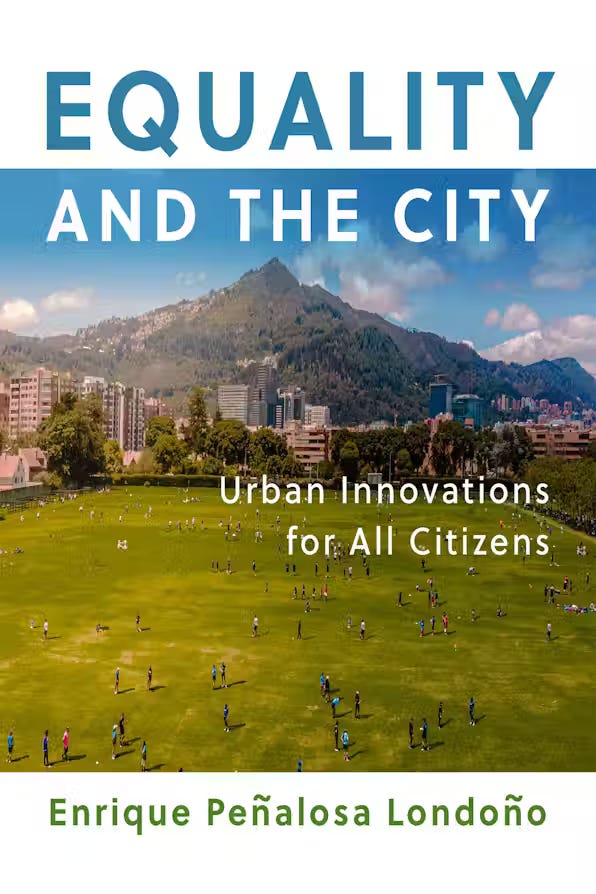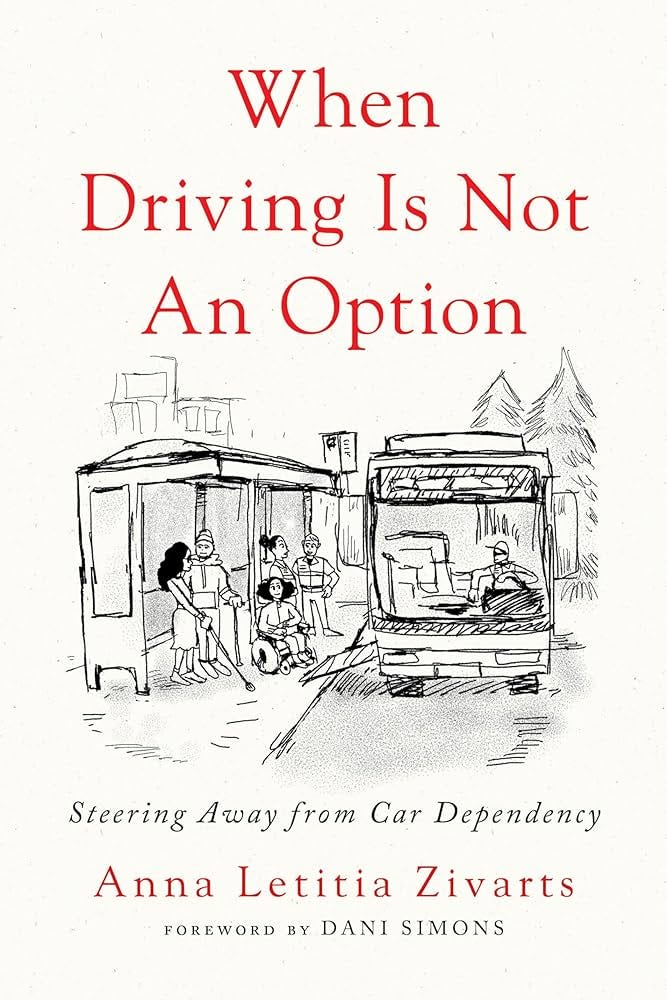This spring, there seems to be a surfeit of new books about cities and adjacent topics. I’ve asked for review copies of several of them, and want to finally kick off The New Urban Order Book Club with subscribers. Even if you don’t want to join the book club, hopefully you’ll enjoy this recap of forthcoming books.
Interested in the book club? I’ve outlined the five books below, and at the bottom you get to pick which one you want to read. Per Substack you can only vote once, but do write in the comments if you want to vote for more than one!
Equality and the City by Enrique Peñalosa Lodoño
Enrique Peñalosa Londoño served as the mayor of Bogotá, Colombia for two separate terms during which he initiated the TransMilenio Rapid Bus Transit system, among the largest and most comprehensive public transit systems in the Global South, and created or improved more than a thousand public parks. Underlying these policies was a conviction in sustainable urbanism. For Peñalosa Londoño, city design is not just engineering; it defines human happiness, dignity, and equality. “An advanced city is not one where the poor own a car,” Peñalosa writes, “but one where the rich use public transport.”
The 15-Minute City by Carlos Moreno
Carlos Moreno is the godfather of The 15-Minute City movement and this book explores the gestation of this “proximity revolution” where people can walk or bike to all their daily necessities in 15 minutes. The book also profiles the leaders and cities that are doing something about it, including among others, Buenos Aires, Busan, Cleveland, Milan, and of course, Paris.
The Story Of Carbon Upfront by Lloyd Alter
We must cut carbon emissions to mitigate climate change. But emissions are not produced just by driving your car or heating your home. "Upfront carbon" refers to all emissions involved in making your car or building your home or any other item. As we seek to incorporate more renewables and less fossil fuels into our energy supply, upfront carbon becomes increasingly dominant compared to operating emissions, yet they are often ignored. The Story of Upfront Carbon establishes the compelling rationale for carbon minimalism, arguing that only through frugality, simplicity, and materiality can we address global inequality and avoid climate catastrophe.
When Driving is Not an Option by Anna Letitia Zivarts
One third of people living in the United States do not have a driver license. Because the majority of involuntary nondrivers are disabled, lower income, unhoused, formerly incarcerated, undocumented immigrants, kids, young people, and the elderly, they are largely invisible. The consequence of this invisibility is a mobility system designed almost exclusively for drivers. This system has human-health, environmental, and quality-of-life costs for everyone, not just for those excluded from it. If we’re serious about addressing climate change and inequality, we must address our transportation system.
Triumph of the Yuppies by Tom McGrath
The “u” in Yuppies stands for “urban”… By the time their obituary was being written in the late 1980s, Yuppies—the elite, uber‑educated faction of the Baby Boom generation—had become a cultural punchline. But amidst the Yuppies' preoccupation with money, work, and the latest status symbols, something serious was happening, too, something that continues to have profound ramifications on American culture four decades later. Yuppie values had an undeniable impact on the worlds of fashion, food, and fitness, as well as affecting the broader culture—from gentrification and an obsession with career success to an indulgent materialism. Most significantly, the me‑first mindset typical of Yuppieness helped create the largest income inequality in a century.










This was such a tough choice!
Thank you for your support!